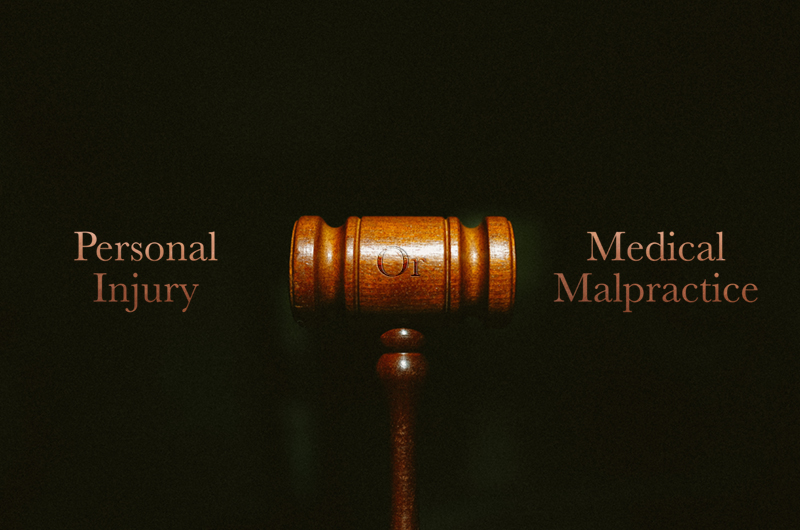Personal Injury & Medical Malpractice: What’s the Difference?
We understand that, to some laypeople, all lawsuits look the same. You may ask, “if I was injured during surgery, why wouldn’t I file a personal injury lawsuit?” In fact, there are several key differences between types of lawsuits that will determine the scope, process and possible damages of a case. Today we’re explaining some of the nuances between personal injury and medical malpractice cases.
Legal Definitions
A personal injury claim is filed when someone’s negligence or recklessness leads to a physical injury. A medical malpractice claim is a special type of personal injury claim that is filed when a healthcare professional harms a patient due to negligence or error.
Similarities
Personal injury and medical malpractice both fall under civil tort law, which broadly covers the wrongdoing of one individual toward another. For that reason, they share two key components: proof and damages.
Proof
Both personal injury and medical malpractice cases place the burden of proof on the plaintiff. You must prove that the defendant’s actions led to direct harm. For example, a surgeon operating on the wrong side of the body is a clear example of a medical error that can lead to a patient getting injured.
Damages
In both types of cases, the plaintiff may seek economic and non-economic damages in the form of monetary compensation. Economic damages cover items like treatments and surgeries following the injury, whereas non-economic damages are awarded to offset the plaintiff’s pain and suffering. Generally, the damages awarded in a medical malpractice case are much higher than a personal injury case.
Differences
Despite their similarities, there are a few key differences between personal injury and medical malpractice cases. Most notably, medical malpractice cases are more difficult to pursue due to the complexity and resources associated with proving fault against a healthcare provider.
Complexity
A typical personal injury case, such as a car crash, is fairly straightforward. The damage is clear and the defendant may admit a certain level of fault, such as texting while driving. In a medical malpractice case, the error may be less apparent and the full extent of the injury may take time to present itself. Medical malpractice cases often delve into the nuances of a patient’s individual medical history, meaning no two are ever the same.
Research
Medical malpractice cases generally involve extensive research and planning in order to be successful. Your attorney may rely on expert witnesses, such as doctors or nurses, in order to understand exactly how your healthcare provider deviated from the standard of care.
Timing
As with any tort claim, there are statutes of limitations that determine when you may file a personal injury or medical malpractice lawsuit. Although the exact timing varies from state to state, plaintiffs generally have less time to file a medical malpractice claim than a personal injury claim. In Missouri, the statute of limitations for medical malpractice claims is two years, whereas it is five years for personal injury claims.
Trust Makes the Difference
When filing any lawsuit, you should have full confidence in your attorney’s ability to represent you with skill and experience. At Zevan Davidson Roman, we have chosen to focus our practice so that we can deliver better results for our clients. Schedule a consultation with one of our attorneys to learn more about our distinct approach to personal injury and medical malpractice.
Missouri Medical Malpractice Lawyer
If you have suffered as a result of medical malpractice, contact our legal team right away. Waiting to seek legal representation can prevent you from filing a claim and receiving the compensation you deserve.
Contact Zevan Murphy today.

